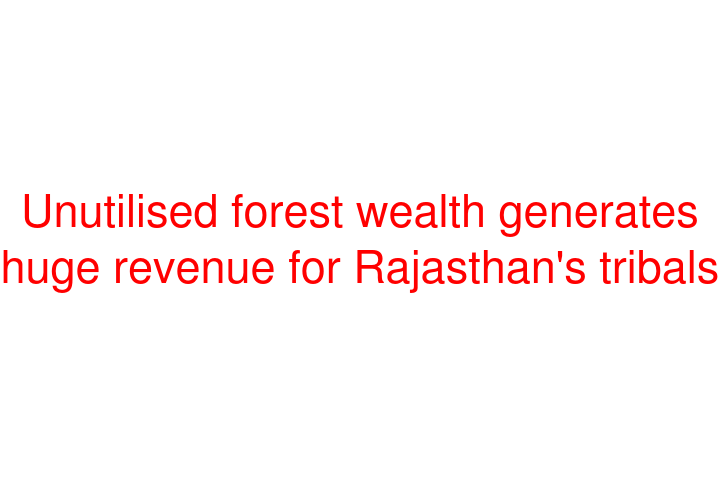 By Saurabh Katkurwar
By Saurabh Katkurwar
Udaipur, Nov 20 (IANS) Farming has rarely been a viable proposition in Rajasthan's dry and hilly Udaipur region. A new way has now been found to provide sustainable sustenance for the area's tribals by enabling them to sell -- for a staggering Rs 189 crore ($29 million) in the last two years -- minor forest produce (MFP) that is abundant in the area and has remained unutilised for almost nine decades.
According to officials, collection of MFP such as amla (wild gooseberry), fruit of the mahua (butter tree), musli (Chlorophytum Borivilianum), harad (Terminalia chebula), baheda (Terminalia Bellerica), kangani (Foxtail Millet) and puhad (Senna Tora) has now been enabled by an amendment in the law.
About 92 per cent of the region is covered by hills -- rich in medicinal plants that could not be commercially exploited till two years ago due to a penal provision in the Indian Forest Act, 1927.
Bhagwan Sahay Jatwa, Secretary of Udaipur's Agricultural Produce Market Committee (APMC), said the government amended the APMC Act in 2015 to facilitate the collection of MFP.
"The move has brought really good results. Tribals in the region have generated revenue worth Rs 189 crore in the last two years," he said.
These herbs are in demand from national as well as international companies.
"Dabur and Patanjali have recently made purchases. In addition, puhad was exported to Germany, Japan, China and Vietnam and we even got up to Rs 60 per kg," Jatwa said.
Two years ago, tribals desisted from collecting and selling MFP as, without a transit permit (TP), this attracted penal action.
"They could be fined heavily and jailed under provisions of the IFA. Since obtaining a TP was a complex process and collection of MFP was a risky business, tribals chose to stay away," Jatwa said. Only three TPs have been generated in the Udaipur area since 1927, he added.
Despite the amendment, tribals still prefer to sell their produce to small traders due to the fear of being harassed by the police and officials of the Forest Department.
"Still, there is fear among them. We have been going to villages to inform them that they will not be charged for collecting MFP," said Sanjay Vyas, Joint Director (Marketing) in the Agriculture Department.
The government has come up with incentives such as reservation for tribals in allocation of shops in market yards, subsidy on trading charges, insurance to encourage tribals.
"We have kept 20 per cent of shops reserved for them in the market and every tribal involved in MFP collection is given insurance of Rs 2 lakh. In addition, there will not be any commission or APMC cess charged from the tribals," Jatwa said.
He said a separate market yard at the Udaipur market was ready and trading would start in the next six months.
Seven small markets were being set up around Udaipur city and so tribals do not have to travel long distance to sell their produce, Jatwa added.
(Saurabh Katkurwar can be contacted at saurabh.k@ians.in)
(This story has not been edited by Social News XYZ staff and is auto-generated from a syndicated feed.)
About VDC
Doraiah Chowdary Vundavally is a Software engineer at VTech . He is the news editor of SocialNews.XYZ and Freelance writer-contributes Telugu and English Columns on Films, Politics, and Gossips. He is the primary contributor for South Cinema Section of SocialNews.XYZ. His mission is to help to develop SocialNews.XYZ into a News website that has no bias or judgement towards any.
